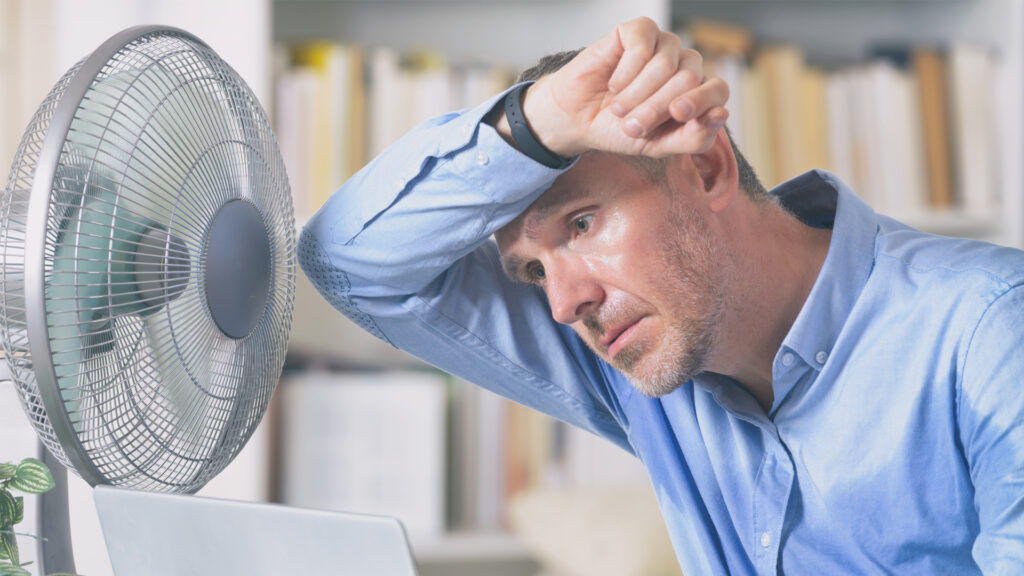By Carlos Roa, VoLo Foundation
In advance of Heat Action Day on June 2, scientists from World Weather Attribution, the Red Cross Red Crescent Climate Centre and Climate Central released a new report assessing the influence of human-caused climate change on dangerous heat waves over the past 12 months (May 1, 2024, to May 1, 2025).
Among their key findings, the report highlights that over the 12-month period, 4 billion people, about 49% of the global population, experienced at least 30 additional days of extreme heat (hotter than 90% of temperatures observed in their local area over the 1991-2020 period) due to human-caused climate change.
They add that in 195 countries and territories, climate change at least doubled the number of extreme heat days compared to a world without global warming.
Extreme heat consequences for human health
Delving into how exposure to extreme heat can be associated with mortality, The Journal of the American Medical Association (JAMA) reports a 117% increase in the number of heat-related deaths in the U.S. from 1999 to 2023. Researchers studied a total of 21,518 fatalities classified as heat-related and concluded the number of deaths rose from 1,069 in 1999 to 2,325 in 2023.
Extreme heat is also becoming a major public health threat, linked to rising cases of heatstroke, heart attacks and dehydration. Vulnerable groups, such as the elderly, children, pregnant women and outdoor workers, face the highest risks. Moreover, heat worsens mental health, weakens the immune system and may accelerate aging. Urban areas are especially affected due to the heat island effect.
During periods of extreme heat, pets can quickly experience heatstroke, burned paws and dehydration.
Protect yourself from extreme heat

To protect yourself from extreme heat, follow these key precautions:
- Stay hydrated: Drink plenty of water, even if you’re not thirsty. Avoid alcohol and sugary drinks.
- Stay indoors during peak heat: Limit outdoor activity between 10 a.m. and 4 p.m.
- Use fans or AC: Spend time in air-conditioned spaces or use fans and cooling cloths.
- Dress smart: Wear lightweight, loose-fitting, light-colored clothing and a wide-brimmed hat.
- Cool your body: Take cool showers or baths and apply cold compresses to your neck or wrists.
- Check on others: Especially the elderly, children and those with health conditions.
- Never leave kids or pets in cars: Not even for a minute.
- Know the signs of heat illness: Dizziness, nausea, confusion, rapid pulse, or headache may signal heat exhaustion or heatstroke. Act fast and seek help if symptoms appear.
Taking action beyond personal protection
We must look further ahead to take responsibility and get involved in climate action by making daily choices that reduce our environmental impact.
This includes smart energy use at home, using public or clean transportation, reducing waste and shifting toward a more plant-based diet. Supporting clean energy, whether by installing solar panels or choosing green energy providers, also plays a key role in lowering carbon emissions.
Community and civic engagement are equally important. From planting trees to supporting environmental conservation efforts, every action counts. On a broader level, voting for climate-focused leaders, supporting environmental policies and raising awareness in your community can amplify the impact.
Every individual action, when multiplied across households and communities, helps move the needle toward a more sustainable and climate-resilient future that reduces the impact of heat on our health.
Carlos Roa is senior press and PR director for VoLo Foundation. VoLo Foundation is a financial supporter of The Invading Sea. Banner photo: A man cools himself on a hot day (iStock image). This piece was originally published at https://volofoundation.org/news/staying-safe-and-healthy-during-extreme-heat/.
Sign up for The Invading Sea newsletter by visiting here. To support The Invading Sea, click here to make a donation. If you are interested in submitting an opinion piece to The Invading Sea, email Editor Nathan Crabbe at nc*****@*au.edu.



